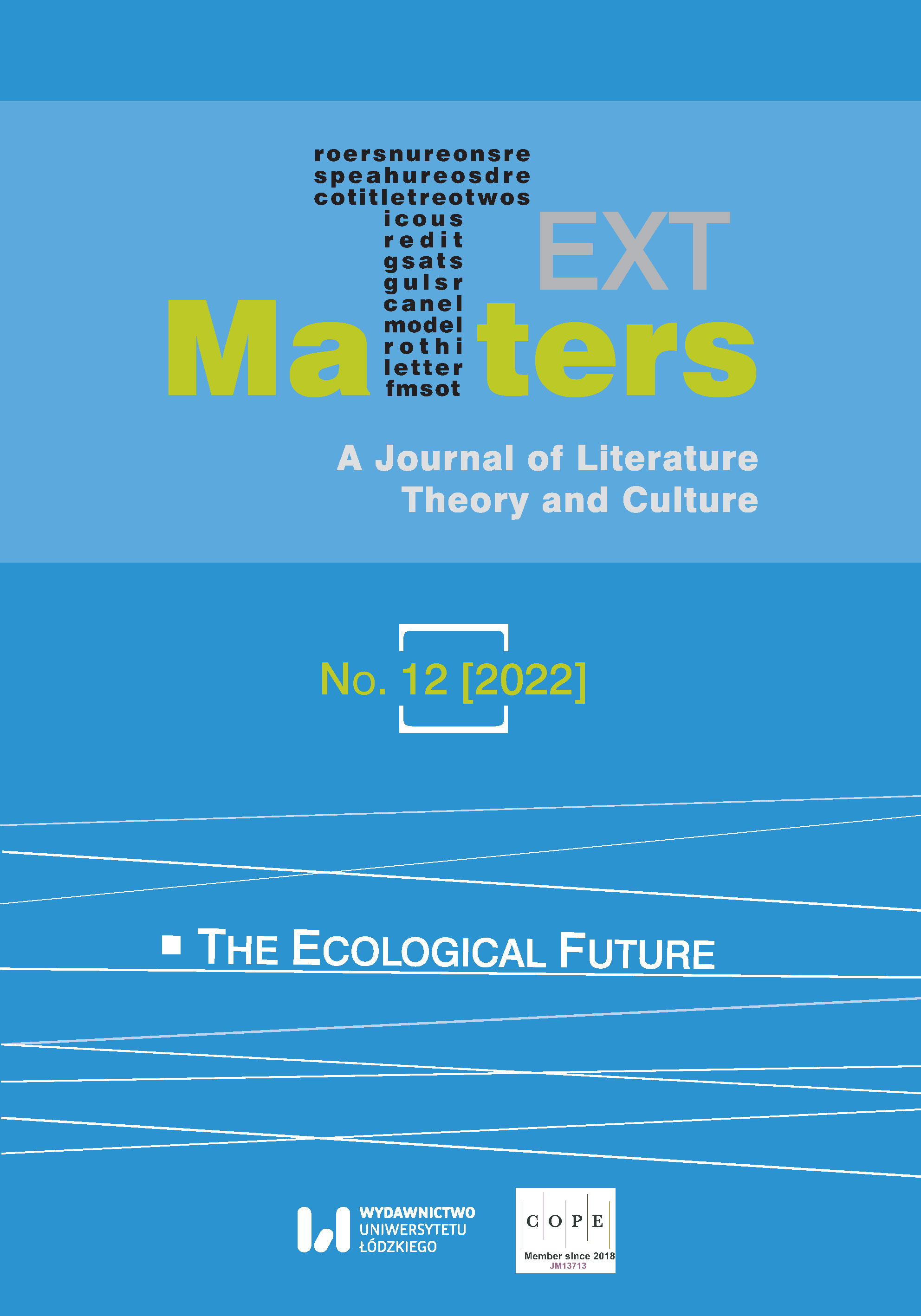“Did You See Last Night’s Episode of Ecotopia?”: How a TV Series Could Help Move Climate Action Forward. A Conversation with Elizabeth Watson
DOI:
https://doi.org/10.18778/2083-2931.12.20Downloads
References
Callenbach, Ernest. Ecotopia. Banyan Tree, 1975.
Google Scholar
Don’t Look Up. Directed by Adam MacKay, Paramount Pictures, 2021.
Google Scholar
Euphoria. Created and written by Sam Levinson, HBO, 2019–22.
Google Scholar
Friends. Created by David Crane and Martha Kauffman, NBC, 1994–2004.
Google Scholar
Game of Thrones. Created by David Benioff and D. B. Weiss, HBO, 2011–19.
Google Scholar
Greer, John Michael. Retrotopia. Founders, 2016.
Google Scholar
Klein, Naomi. This Changes Everything: Capitalism Versus the Climate. Penguin, 2014.
Google Scholar
Marshall, George. Don’t Even Think About It: Why Our Brains Are Wired to Ignore Climate Change. Bloomsbury, 2014.
Google Scholar
Seinfeld. Created by Larry David and Jerry Seinfeld, NBC, 1989–98.
Google Scholar
The Office. Written by Greg Daniels, NBC, 2005–13.
Google Scholar
Published
How to Cite
Issue
Section
License

This work is licensed under a Creative Commons Attribution-NonCommercial-NoDerivatives 4.0 International License.













